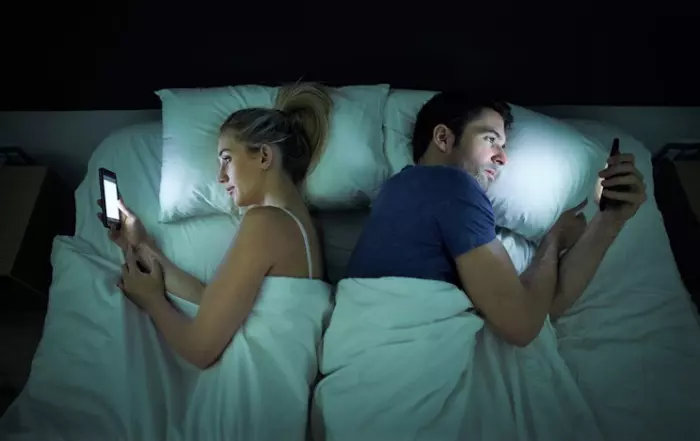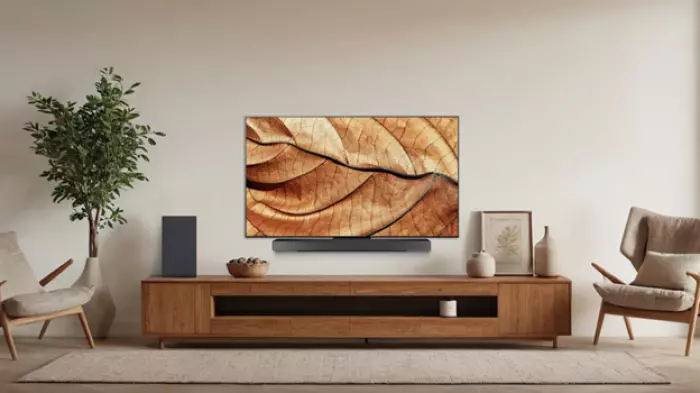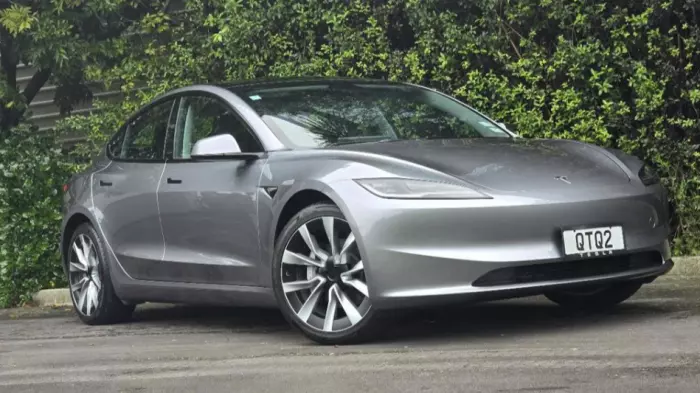We’ve all had one: a moment when you realise your relationship with technology needs a serious overhaul.
The phantom phone ringing. The vague sense of guilt after scrolling through social media for far longer than intended. Having so many tabs open on your computer that it melts down. Or this writer’s personal nadir, being particularly pleased with some work and pressing Ctrl-S to save it… when I was writing by hand on paper. Something had changed in my brain, and not for the better.
English author Laurence Scott tells a similar story in his 2015 book The Four-Dimensional Human: Ways of Being in the Digital World, about writing a postcard to a friend. Leaving the completed card on the table, he realised it was creating in him a “general nervousness and sense of waiting”.
When understanding kicked in, it seemed deranged. “All this wordless agitation … voiced itself suddenly in the thought, ‘Why hasn’t he answered it yet?’”
Digital technology is shaping our responses to the world in ways researchers don’t fully understand. It’s essential to modern life, but it’s also causing us great stress. We’re increasingly in thrall to our devices, modern-day frogs in boiling water. It could be time to hop out of the saucepan.
Even before the covid-19 pandemic, digital dependency was a growing issue. A survey last April of mobile-phone providers by consumer review and comparison website Canstar Blue found 62 percent of Kiwis use apps such as Facebook Messenger, Snapchat and WhatsApp to communicate with others rather than traditional calls and text messages, up from 24 percent in 2017. More than a third (41 percent) of people consume most of their media through their phone, and 58 percent use their phone for everyday transactions such as banking, paying bills or paying at the checkout.
Another Canstar Blue survey, in June, found 48 percent of people feel anxious if they leave the house without their phone; 63 percent check it within 10 minutes of waking in the morning. It’s interfering with our enjoyment of life.
Are we creeping close to society-wide addiction? We certainly have a huge lack of awareness about our digital habits, according to Dr Sarah Cowie, a senior lecturer at the University of Auckland School of Psychology. Our use of technology has become normalised and automatic, triggering frequent hits of dopamine in our brains as we scroll through news or social feeds, go online shopping or play games.
“We know small rewards that are easily and immediately available, and happen frequently and unpredictably, tend to pull our choice towards those behaviours that produce those rewards [for example, social media] and away from ones that require more time and effort, and have delayed consequences, even if those rewards are bigger [for example, face-to-face interaction],” says Cowie.
 University of Auckland senior lecturer Dr Sarah Cowie
University of Auckland senior lecturer Dr Sarah Cowie
So, let’s be realistic: how often does a digital interaction leave you feeling fulfilled or enriched? For all its enjoyment, information and social connection, that world is also a distracting static of noise, opinions and goods we don’t really need.
The key to living a more analogue life is to identify how our technology use meets our basic psychological needs, then find other ways to meet those needs, says Cowie. First, the need to belong.
“Irrespective of your personality type, your experience, your cultural background, we do have a need to be part of something. Social media makes that really easy because it’s very accessible, and there’s not a lot of time or effort involved,” she says.
Likes and comments add another layer. “There’s this sense of belonging and interacting with people. If you aren’t particularly extroverted, you still have a need to be part of some sort of community or group, so it might remove some of the more fearful aspects of communication and interaction.”
Technology also feeds our psychological need for stimulation. Easy access to this flood of input, unimaginable in our grandparents’ time, is the big trap, says Cowie – it’s compulsive, even when the information is much less meaningful than a real-life community, or physical experiences.
A lot of mindless technology use is about escaping from feelings of inadequacy, envy or dislocation, or a difficult situation we don’t want to tackle. But really, there’s no escaping being human. “Acknowledging that those feelings are part of the normal human existence, that it’s OK to feel sad or upset or to have those feelings that we want to avoid, is definitely part of it,” says Cowie. Finding other ways to process those feelings is the next step.
Even before the prospect of lockdown sent half the country out in a frenzied search for seedlings, flour and fabric, the desire to de-tech was growing. Anna Rodewijk Sole, brand manager of The Fabric Store, says she’s noticed many customers new to sewing visiting the company’s outlets over the past three to four years.
“I think it’s linked to the conversation around sustainability and the impact of the fashion industry,” she says. “But also, there’s been a movement back to craft. Perhaps the mental-health benefits of sewing and other craft-related activities are also the key to the bigger analogue shift.”
At Auckland’s Direct Sewing Machines & Supplies, general manager Shay Narsey says sales are up more than 100 percent for the year to date, and the company has been sold out of household machines for the past three months. “No one would have expected this kind of sale to come through for household machines,” he says. “The sewing industry doesn’t win much, but I think we’re winning this one!”
Around the country, people are starting craft businesses, and running workshops in blacksmithing, shoemaking, leather work and more. The desire to use our hands to create something tangible is obviously strong.
But a 2014 study, published in the journal Social Psychology, found even the mere presence of a cellphone could be distracting enough to affect attention and task performance. Researchers asked subjects to carry out tasks that required reasonable degrees of cognitive load, and left a smartphone on the desk in front of some participants.
“The people who’d had the smartphone sitting on the desk in front of them while they were doing the task performed worse on the challenging cognitive tasks,” says Cowie. “It was just a smartphone, and that’s the really interesting thing, that it wasn’t even their personal smartphone.”
Though researchers are divided on how much heavy use of technology affects our ability to focus, learn or remember, it’s a no-brainer that switching off whenever possible brings benefits.
Focusing on the physical world is the key to clarity for business owner Emma Sage. After a career in marketing and brand management, she moved into freelance writing, and this year started online magazine Sage Journal, covering garden and landscape design.
Sage says she sorts out her business ideas while working in the garden. “That’s when it feels like things are actually working and flowing better, and that my ideas are more concrete. I get so much more clarity.”
Even if you aren’t interested in cultivating a garden or planter box, spending time in public parks or gardens or going on a bushwalk is a chance to let your brain freewheel.
 Emma Sage
Emma Sage
“It doesn’t take much to notice the trees are changing colour and losing their leaves in autumn, or the spring bulbs and blossoms are coming out, or even in winter, the rain and wind are really necessary to pare away the autumn debris,” Sage says. “Watching that happen can feel settling when the rest of life around us is really not that settled.”
Digital technology has fundamentally changed the way we experience travel. Blue aerogrammes and hefty guidebooks seem quaint compared to today’s slimline, all-in-one device. But relying on technology means we miss out on what makes travel special: spontaneity, the unexpected, getting a bit lost. Trying to make your trip as jam-packed and perfect as possible (while documenting every moment) can turn it into an exercise in box-ticking, and ultimately less satisfying.
In a 2019 study, published in the Journal of Travel Research, 24 participants from seven countries restricted their access to technologies such as mobile phones, laptops, the internet, social media and navigation tools while travelling. Many of them felt anxious and frustrated at first, yet also excited. Those feelings shifted into growing levels of acceptance, enjoyment and even liberation.
Being offline can present genuine challenges when you’re in unfamiliar territory, but dealing with new environments is part of what makes travel so refreshing. Embrace the analogue by leaving some aspects of your trip to chance. Pick a few highlights to visit, and otherwise just wander, instead of looking up ‘cool stuff near me’. You’ll notice more about a place and have a greater sense of achievement.
Create situations and physical spaces in which digital devices aren’t the norm. It’s a technique familiar to anyone who successfully separates working at home from the rest of their life, perhaps through having a home office or a ritual to signify finishing work. Decide that, for example, the lounge is a place for reading and conversation instead of screens, and stick to that rule.
Regularly switching off is healthy, but it’s also hugely beneficial to do a digital detox – a phrase that was added to the Oxford Dictionary (online edition only, of course) in 2013. Cal Newport, author of the acclaimed 2019 book Digital Minimalism: Choosing a Focused Life in a Noisy World, says turning off notifications and having digital-free days don’t go far enough in our quest for balance. He advocates a 30-day digital detox, in which you take a break from optional technologies and use the time to explore satisfying analogue activities.
Deciding which technologies or platforms you allow back into your life, to support the life you want, will be easier when you’re working from a blank slate. Digital technology is a tool and we need to use it as such – and know when to set it aside.
In 2017, Netflix CEO and co-founder Reed Hastings was famously reported as saying the company’s real competitor was not other streaming services. “We actually compete with sleep,” he said. “And we’re winning!”
Whether or not it was a ploy to give the impression they weren’t worried about rivals, he had a point. For all the quality storytelling Netflix brings to our lives, there’s an opportunity cost to tech-bingeing. And you don’t even need to see The Social Dilemma to know social media is engineered to be as addictive as possible. Why would we want to stay at the mercy of someone else’s corporate whims?
So, we return to choices, and habits. There seems to be hope for us. According to the Canstar Blue mobile-phone provider survey, the number of people using their phone while on the toilet fell from 41 percent in 2017 to 19 percent this year.
Try ‘wait training’ – gradually increasing the length of time you go without your mobile phone. Check in with the news a couple of times a day, instead of constantly picking at anxiety-inducing fodder. Bring a book for those in-between times.
Think about what you really want and need to keep up with, then ditch the rest. Identifying what you want more of in your life will help you resist the urge to be distracted by what everyone else is talking about.
If this earthquake of a year has taught us anything, surely it’s that our time on this Earth is finite, and so very precious. The things that have the privilege of our attention should be worth it.












